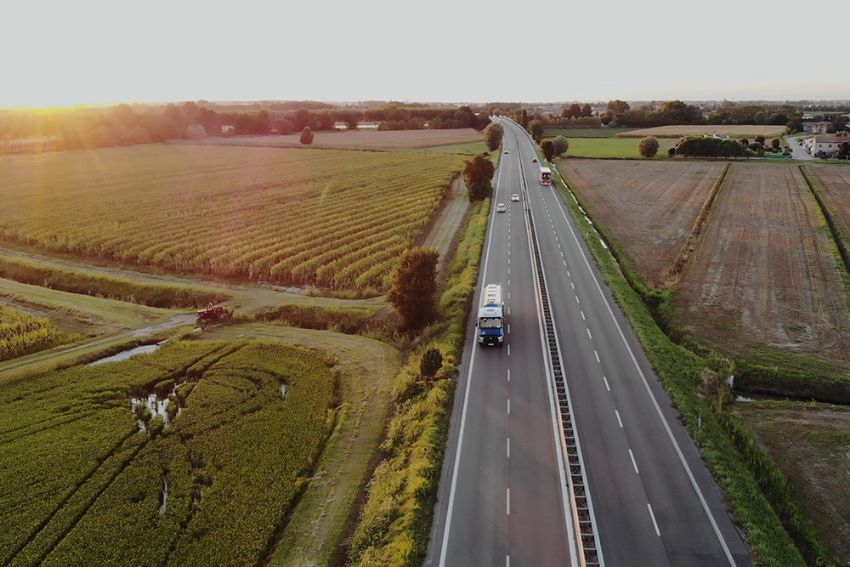Electric roads – a path to the future?
Many cars on our roads are powered by electricity – and there will be more. The use of electric cars is an important element in the transition to a fossil fuel-free society, but this sets high requirements for battery technology and smart charging solutions. Electric roads could be a way forward according to Mats Alaküla, researcher at Lund University’s Faculty of Engineering, LTH.
Jessika Sellergren – Published 7 July 2022

Mats Alaküla’s area of research includes the digital transport technology of the future. He is professor of industrial electrical engineering and automation at LTH.
“The impact of fossil fuels on the climate must be reduced and electric cars are an important part of the solution. The challenge is that we are not really ready for the charging of all electric vehicles, neither nationally nor internationally,” says Mats Alaküla
New solutions are needed and one of them could be electric roads – based on an embedded rail that charges the vehicle while driving – according to Mats Alaküla. Electric roads could reduce the need for batteries in their current form and make it possible to spread charging in time and space.
Charging technology is not sufficient
Today’s electric cars need recharging after about 300-600 kilometres and a precondition is that there are charging points along the route. An additional challenge is charging for transport vehicles such as lorries. The batteries used are large, weigh several tonnes and take a long time to charge.
“A large battery needs to be charged longer than a small one, which requires freight terminals to be equipped with charging technology sufficient for many lorries that need to be parked and charged for long periods. This is not the case today,” states Mats Alaküla.
Battery technology is a challenge
“The batteries in the electric cars currently on the market often contain metals that have an impact on the climate. The production of the batteries is also a challenge as, in addition to the environmental impact, they also have a negative effect on people’s health,” says Mats Alaküla.
Mats Alaküla uses a calculation to show how electric roads could reduce the need for batteries in their current form and usage.
“If we have 6,000 kilometres of electric roads in Sweden, which corresponds to 40 per cent coverage of the country’s national roads and international E-road network, it could reduce the need for batteries by 60 per cent,” says Mats Alaküla, who also sees other benefits from electric roads.
“In addition to the technology that enables charging, electric roads contain various high-tech solutions such as temperature and radar technologies. Detailed information of that type can help to improve road safety,” he says.
Development needs to accelerate
There is a focus on environmental goals, but Mats Alaküla points out that the rate of development needs to be even faster if electric roads are to contribute to transition efforts.
“Investment in electric roads could be an element in reducing carbon dioxide emissions from freight traffic and in time passenger traffic as well, but we need to speed up, the current rate is not sufficient,” he says.

Mats Alaküla
Professor in Industrial Electrical Engineering and Automation at LTH, Faculty of Engineering.
How electric roads work
Electric roads transfer electrical energy to electric vehicles that are on the road. The vehicles can be charged whether they are moving along the road or stationary, which reduces the need for fast charging stations and large vehicle batteries.
There are different principles for electric roads and energy can be transferred to the vehicle in different ways, such as from above via overhead powerlines, or from below via a rail or magnetic coils in the ground.
Mats Alaküla states that today’s electric vehicles are not prepared for the electricity network, but they can be adapted quite easily. He also asserts that in technical terms it is simple for the automotive industry to produce cars adapted for energy supply via electric roads.
Almedalen, 5 July: The role of electric roads in the energy transition
The importance of electric roads in the transition will be discussed by Mats Alaküla and other electrification experts and partners during Almedalen Week at Hästgatan 13 in Visby
on 5 July at 13:45.
The discussion is part of Lund University’s programme of events in Almedalen – on Almedalen's website.
